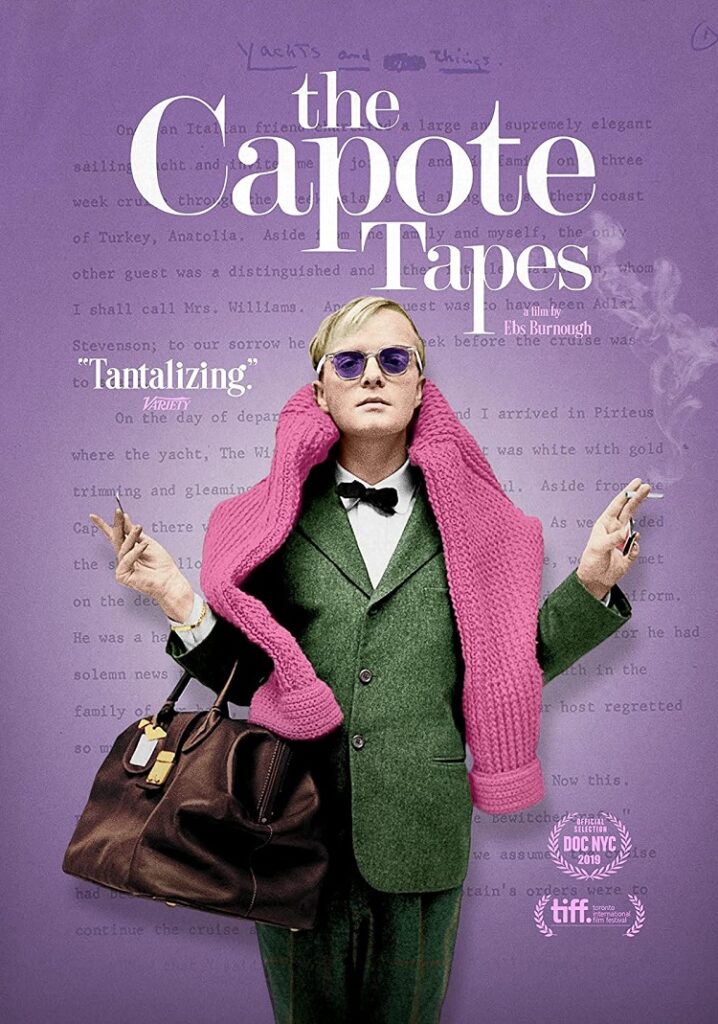
The Capone Tapes is a documentary about the life of author Truman Capote (1924 – 1984). The titular tapes were interviews recorded by author George Plimpton, who used them for his 1998 oral biography Truman Capote: In Which Various Friends, Enemies, Acquaintances and Detractors Recall His Turbulent Career. Plimpton can be heard having conversations with Breakfast at Tiffany‘s screenwriter George Axelrod, Lauren Bacall, Candice Bergen, William Buckley, Jr., Capote’s longtime partner Jack Dunphy, and Norman Mailer. How first-time director Ebs Burnough got access to them is not explained, but he uses Plimpton’s tapes, along with new interviews that include Capote’s adopted daughter Kate Harrington, Dick Cavett, Jay McInerney, and Sally Quinn; and archival footage featuring Capote and others to tell his life story.
Capote was a child of divorce and abandonment, raised by relatives at a young age in Alabama where he grew up with and befriended neighbor Harper Lee, author of To Kill a Mockingbird. They based characters upon one another in their work. He would later be called to live with his mother and her new husband in New York. Her eventual suicide naturally had a great impact on him.
He would become a sensation at 23 in 1948 with his first novel, Other Voices, Other Rooms, considered by one interviewee as the first openly homosexual book. He would stay at the top of literary circles with his 1958 novella Breakfast at Tiffany’s, which was adapted into a 1961 film, and his 1966 non-fiction novel In Cold Blood, in which he inserted himself into story.
Capote gets caught up in being a celebrity and the perks that come with it because it’s easier than writing. He becomes a frequent and desired talk-show guest because he has no filter when sharing his views and spares no one’s feeling.
Taken in by New York High Society, Capote pals around with a number of high-profile women like Slim Keith and Babe Paley. These friendships would inform his work as discovered when four chapters of what would become Answered Prayers, his 1986 posthumously published novel, were sold to and published by Esquire. A number of women, probably more than there actually were, recognized themselves in these stories and felt betrayed. Of course, they took the opportunity to make it known they recognized themselves, which makes one wonder how offended they actually were. Yet it was enough for many in those social circles to cut ties with him, which surprisingly surprised and hurt him.
Fame is an addiction, one Capote suffered as he did alcohol and prescription pain medicine. He had to find a new crowd to adore him and was by Andy Warhol and the crowd at Studio 54, which he frequented. Unfortunately, this was the beginning of the end as his hard living would lead to his demise.
Truman Capote lived such a fascinating life it would be hard to make a documentary about him that wasn’t interesting. Yet Burnough deserves credit for not making The Capone Tapes as salacious as it could have been nor even as salacious as Capote was when telling tales about himself. The film is recommended for those who want to learn about him and his work. Unfortunately, the DVD comes with no extras.